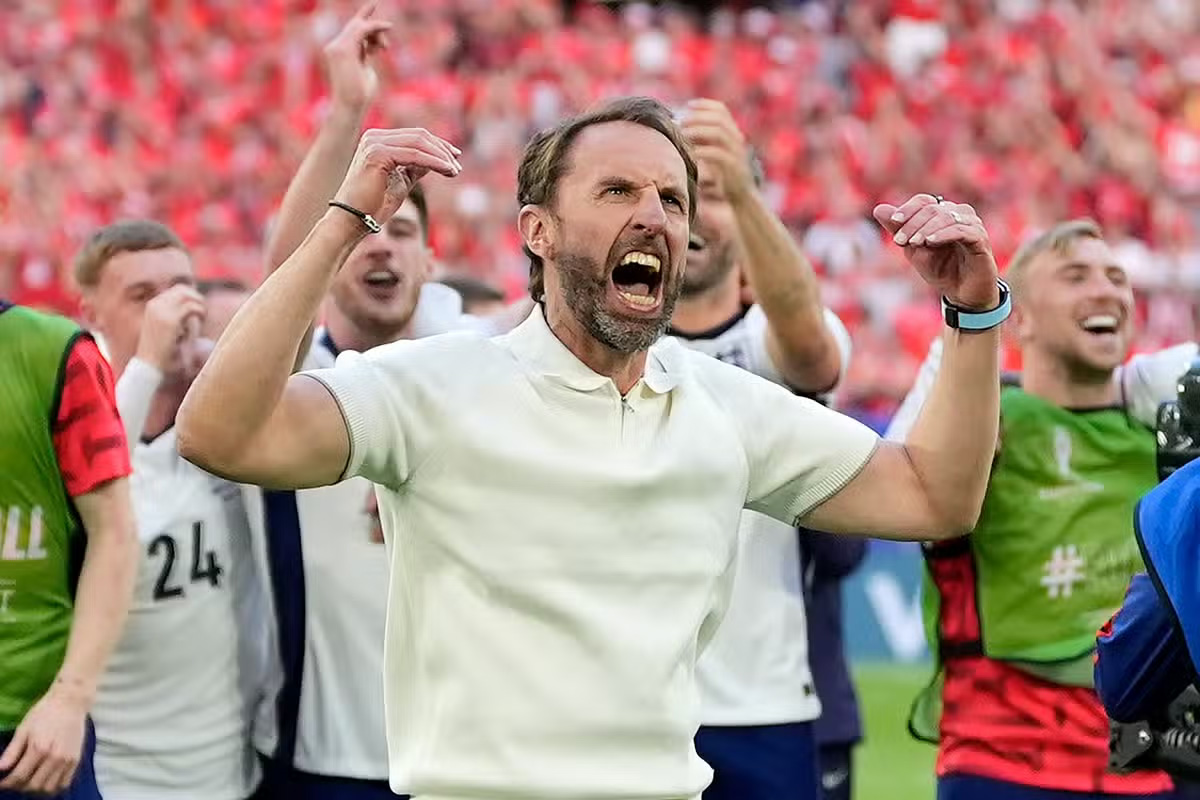High Hopes and Heartbreaks: England's Euros Journey Under Gareth Southgate
Expectations for England going into the Euros had never been higher. The successes of the 2018 World Cup, 2020 Euros, and 2022 World Cup demonstrated Gareth Southgate's ability to galvanize both a dressing room and a nation desperate for football to 'come home.' Yet, the heartaches of previous tournaments only added to the desperation for tangible success.
Kane had just racked up 36 goals in his debut season in the Bundesliga. Foden had won the Premier League Player of the Year, Bellingham had already placed himself among Madrid's finest, and the likes of Saka and Rice had their best seasons to date. Meanwhile, players like Palmer, Gordon, and Mainoo had incredibly impressive breakout seasons for top Premier League clubs. There was an abundance of individual talent that needed to be harnessed, but how would Southgate integrate all this attacking talent with his defensive philosophy that had brought previous tournament successes?
Group stage struggles
England's tournament began with a fantastic opening 20 minutes, Bellingham heading home from a deflected Saka cross. However, the rest of the game had a different feel. Too many times, England had taken the lead in previous tournaments only to fall back, as seen in the Euro 2020 final against Italy and the 2018 World Cup semi-final against Croatia. Despite holding onto the win, doubts lingered among fans, with fingers already being pointed at Southgate. They had seen too many times that while this style had the potential to go deep into tournaments, the decisions that made previous England teams fall short were still evident. The subsequent group stage games were uninspiring and dull — England had gone out to not lose the game, instead of trying to win. But despite the on pitch chaos, England somehow topped the group and found themselves on the favourable side of the draw yet again.
Individual brilliance
The knock-outs, and all the cracks that appeared in the group stage burst open. Already, half the nation resigned to defeat. But then… Bellingham produced a moment of magic and suddenly the tide shifted — England were still somehow in this tournament. And they continued to remain in the tournament. The quarter finals… and the individual quality and technical ability of Englands personnel was personified in each penalty. It exemplified there had been a shift in landscape within the players being bought through the academy ranks. This win produced glimpses of positivity and finally… the feel good factor that had been so pervasive from past tournaments felt alive again. Against the Netherlands Instead of Toney being bought on vs Slovakia, it was Watkins turn. England left it late but now had a chance of redemption; the Euro 2020 loss could be rectified. But this wasn’t to be and Spain proved too much, and England fell short once again. In a way, this tournament summed up Southgate’s reign—lacking the tactical acumen of Pep or Klopp, he still created a cohesive group that stuck together despite outside noise. Even after the final, the loud criticism displayed in its true colours, why managing England is the hardest job in football.
Inefficient tactics
Despite the individual brilliance, England's attack faced problems during the tournament. Kane, Foden, and Bellingham often dropped deep to get the ball, crowding the space in the middle and sometimes leaving Saka as the only forward outlet. In the first few games, this heavily dented Trent's passing ability, who flourishes from distributing long balls into high areas. This compactness left areas further up the pitch free, which compounded into England's low xG, and despite dominating possession, they were restricted to their own half. To overcome these issues, Trippier was often left high and wide, and could not be effective, as after all, he was a right-back playing as a left-back, limiting his creative freedom. England's goals did come from individual brilliance rather than a build-up of momentum or an effective press. England's out-of-possession press had come under scrutiny from Gary Lineker and other pundits at the BBC, who rightly questioned the philosophy behind it. In order to effectively press, everyone has to be 100% committed, which England were not. Whether this was due to confusing instructions or naivety, no one knew, but it was surprising that all these players, who seemed tactically clued up at the club level, could be so disjointed. Once England led, they were not able to take control of the game. There was no sense of security — and while they were able to hold possession in their half and drop deep, momentum always shifted in favor of the opponents.
Photo courtesy of SkySports.com
But in defense of Southgate, England were rigid. They had the lowest rate of xG against per 90 minutes of all teams. They were robust and pragmatic, and were always able to stay competitive in games. But there needs to be a healthy balance in providing entertainment and being ugly in tournaments — a balance that resulted in Spain's triumph.
Relationship with the fans
This was the first tournament under Southgate where there was a stifled relationship between the England camp and its fans. Even before the tournament, the sounds of 'it’s coming home' were muted. Negativity from the outside pierced into the camp. After games, instead of 'Sweet Caroline,' boos were loud, and beer cups were thrown towards Southgate. There was a clear fracture between the fans and this England squad. Perhaps, after eight years, people were becoming 'hungover' from Southgate’s football. The players felt this too. “The players have got to take some of the blame,” said Foden. After the Slovakia game, Bellingham noted, ”There’s a really intense pressure. The fans expect a lot from us, regardless of what happened in recent tournaments or years and years ago."
Southgates legacy
Statistically, Southgate leaves the role of England manager as the most successful since Alf Ramsay. He undoubtedly transformed the culture within the England dressing room to an overwhelmingly positive one, which fed into the positive results on the pitch. While he has faced criticism for his tactics, in-game decision making, and just falling short of eternal glory, he has also produced some of the best memories England fans can cherish. The Colombian penalties in 2018 were England's first-ever penalty shoot-out win in the World Cup. The 2-0 win vs Germany in Euro 2020 was one of the great knockout performances. And in this tournament, despite the poor performances, Bellingham's acrobatics, the composed penalties vs Switzerland, Watkins' strike vs the Netherlands, all provided blissful moments that will be remembered forever. He transformed this England team from a mockery to a team that is now feared, a team that can go on to compete to the end of tournaments, and a team who can all put their club rivalry aside to create a positive, harmonious atmosphere.
Perhaps Southgate’s biggest success came off the pitch. He instilled an inclusive, caring mindset, and has not shied away from social and racial issues that are prevalent, but always overlooked, in the UK. Whether the next England manager plays the more free-flowing football England fans are desperate to see, they can thank Southgate for the culture in which he laid the foundations. For that, Southgate has cemented himself as a legend of English football.

